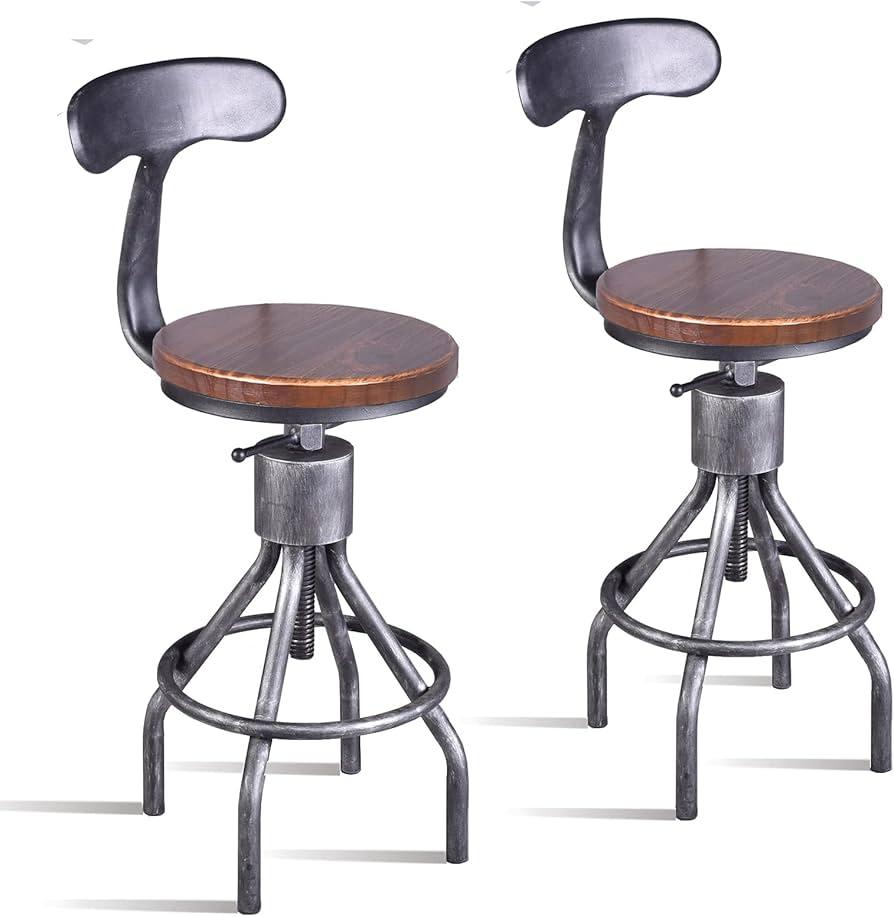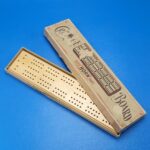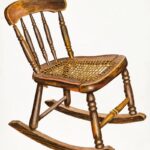In a world increasingly dominated by modern technology and mass-produced convenience, there exists a certain charm in the artistry of the past—a charm that is vividly embodied by the vintage Camillus pocket knife. Born from a rich heritage of craftsmanship that dates back to the late 19th century, these iconic knives offer a glimpse into a time when tools were not merely instruments, but cherished companions with stories etched into their blades. Each vintage Camillus piece is a testament to durability, functionality, and timeless design, making it a coveted collector’s item for enthusiasts and a reliable tool for everyday use. In this article, we will explore the intriguing history, alluring features, and the enduring appeal of the vintage Camillus pocket knife—a blend of art and utility that continues to resonate with those who appreciate quality craftsmanship. Join us as we delve into the legacy of this remarkable knife and uncover what makes it a lasting symbol of American heritage.
The Timeless Charm of Vintage Camillus Pocket Knives
When one gazes upon a vintage Camillus pocket knife, there’s an immediate sense of nostalgia and craftsmanship that is hard to ignore. These remarkable tools, steeped in history, evoke a time when quality and versatility were paramount in everyday carry items. The distinctive patterns on their blades and the rich patina on the handles tell stories of countless adventures, from camping trips in the great outdoors to moments of usefulness during everyday tasks. Each knife not only reflects the art of fine cutlery but also serves as a personal artifact, a tangible connection to skilled artisans who poured their passion into creating these masterpieces.
What sets vintage Camillus pocket knives apart from their modern counterparts is their unique blend of functionality and style. Features that capture the essence of classic design include:Vintage General Electric Travel Iron Cat. No. H3f49 ManuelEso Macabre Vintage
- Robust steel blades: Engineered for durability and sharpness that withstands the test of time.
- Elegant handle materials: Crafted from natural woods, bone, and synthetic materials that age beautifully.
- Versatile tools: Often incorporating multiple functions like a blade, can opener, and screwdrivers.
Collectors and enthusiasts cherish the distinctiveness and the stories each knife carries, turning them into beloved heirlooms rather than just tools. With a variety of styles and models available, owning a vintage Camillus pocket knife is not merely about possession, but rather embracing a piece of history that continuously inspires admiration.
Craftsmanship That Stands the Test of Time
Every vintage Camillus pocket knife is a testament to exceptional craftsmanship, showcasing a harmonious blend of form and function that endures through the ages. Handcrafted by skilled artisans, these knives exemplify quality materials and meticulous attention to detail. The carefully selected components, from the high-carbon steel blades to the durable handle materials, ensure that each piece not only performs beautifully but also serves as a relic of history. The wear and patina accrued over years of use only add to the knife’s character, making it a cherished item for collectors and everyday users alike.
Unique features set the vintage Camillus pocket knife apart from its contemporaries:
- Ergonomic Design: Perfectly shaped handles offer a comfortable grip.
- Versatile Blade Options: From drop points to wharncliffes, every blade serves a specific purpose.
- Historical Significance: A knife that tells the story of craftsmanship passed down through generations.
- Longevity: Built to withstand years of demanding use while retaining functionality.
| Feature | Description |
|---|---|
| Blade Steel | High-carbon for durability and sharpness |
| Handle Material | Variety including hardwoods and synthetic materials |
| Weight | Lightweight yet robust for easy carry |
Varieties and Features to Look For
When searching for a vintage Camillus pocket knife, enthusiasts should pay attention to a variety of features that enhance both functionality and aesthetic appeal. Blade material is crucial; high-carbon stainless steel is preferred for its balance of sharpness and corrosion resistance. The handle material can range from classic wood to durable synthetics, each offering its own unique grip and look. Additionally, look for the lock mechanism type, such as a slip joint or locking blade, which ensures safety during use. Various blade shapes, including clip point, drop point, and tanto, each cater to different tasks, so consider your intended purpose when selecting.
Another important aspect is the condition of the knife. While a well-used knife can tell a story, those in mint condition are often more valued by collectors. It’s also worth examining the etching or markings on the blade, which can indicate the date of manufacture and specific model features. The following table highlights a few popular models along with their distinct characteristics:
| Model | Blade Type | Handle Material | Year Introduced |
|---|---|---|---|
| Camillus 111 | Clip Point | Stag | 1940 |
| Camillus 45 | Drop Point | Burnt Bone | 1955 |
| Camillus 100 | Tanto | Plastic | 1965 |
Caring for Your Vintage Camillus Knife
To ensure your vintage Camillus knife remains a cherished part of your collection, it’s essential to engage in proper maintenance and care. Start by regularly cleaning the blade and handles with a soft cloth to remove dirt and moisture. For stubborn grime, a mixture of mild soap and water with a soft-bristle brush can help, but make sure to dry it thoroughly afterward. Applying a few drops of knife oil can help protect the blade from rust and keep it operating smoothly. Be mindful of the natural materials often used in vintage models, such as wood or bone, ensuring that they are not exposed to excessive moisture or heat.
Storage is another vital aspect of preserving your pocket knife’s integrity. Consider keeping your knife in a protective sheath or case when not in use to prevent scratches and inadvertent damage. Avoid placing it in damp areas, which can lead to corrosion. Here are a few tips for optimal storage:
- Store in a dry, cool place to prevent moisture buildup.
- Use a display case for aesthetic preservation while protecting it.
- Avoid overcrowding in drawers or boxes to prevent slippage and contact damage.
Collecting Tips for Enthusiasts and Novices
For both budding enthusiasts and seasoned collectors, understanding what to look for in a vintage Camillus pocket knife can be the difference between a valuable addition to your collection and a regrettable purchase. Here are some essential tips to consider:
- Know Your Models: Familiarize yourself with different models. The Camillus 1971 and the Camillus Fish Knife are iconic examples that often attract collectors.
- Inspect Condition: Pay close attention to blade condition and lock functionality. A well-maintained knife can command a higher value.
- Check Markings: Look for unique markings or stamps on the blades, as these can denote production years or special editions.
- Research Prices: Utilize online resources or collector guides to gauge market value before making any purchase.
When building your collection, consider documenting and organizing your knives for an efficient overview. Create a simple spreadsheet to track your pieces where you include columns for important details:
| Model | Year | Condition | Market Value |
|---|---|---|---|
| Camillus 1971 | 1971 | Excellent | $150 |
| Camillus Fish Knife | 1982 | Good | $75 |
| Camillus Folding Hunter | 1995 | Mint | $200 |
Where to Find Authentic Vintage Camillus Pocket Knives
When embarking on a quest for authentic vintage Camillus pocket knives, it’s essential to explore a variety of avenues. Start by browsing through local antique shops and flea markets, where hidden treasures often await the discerning collector. These venues can be perfect for discovering lesser-known models that may not be available online. Furthermore, consider joining knife shows and collectors’ expos, which not only provide opportunities for purchase but also for connecting with fellow enthusiasts who share your passion.
Online platforms are another wealth of resources for authentic pieces. Websites dedicated to collectibles, such as eBay, Etsy, and specialized knife forums, often feature a curated collection of vintage knives. Be sure to pay attention to sellers with strong feedback and positive reviews to ensure authenticity. Additionally, reach out to dedicated groups on social media platforms like Facebook or Reddit, where members frequently share tips and lists of reputable sellers and upcoming sales events.
Q&A
Q: What is a vintage Camillus pocket knife?
A: A vintage Camillus pocket knife refers to a folding knife produced by the Camillus Cutlery Company, which was established in 1876 in Camillus, New York. These knives are prized for their craftsmanship, durability, and historical significance, often featuring materials such as carbon steel blades, nickel silver bolsters, and handles made from natural materials like wood, bone, or synthetic composites.
Q: Why are Camillus pocket knives considered vintage?
A: Camillus pocket knives are considered vintage if they were produced several decades ago, particularly before the company closed its American manufacturing in 2007. Collectors often seek out models from specific historical periods, which can range from early 20th-century designs to mid-century styles. The rarity, craftsmanship, and cultural significance of these knives contribute to their vintage status.
Q: What makes Camillus pocket knives unique?
A: Camillus pocket knives stand out for their combination of functionality and artistry. Each knife embodies skilled craftsmanship, often featuring intricate designs and durable mechanisms. Many models incorporate classic American knife-making techniques, which give them a unique character that resonates with collectors and users alike. Additionally, the historical context of these knives reflects a rich tradition of American manufacturing.
Q: How can I identify a vintage Camillus pocket knife?
A: Identifying a vintage Camillus pocket knife typically involves examining the tang stamp, which is usually found on the blade. This stamp includes the Camillus name and often a model number or year of manufacture. Other indicators include the style of the handle, the blade shape, and any distinctive features that correlate with specific production periods. Collectors often refer to catalogs and guides that specialize in vintage knives for additional identification help.
Q: Are vintage Camillus pocket knives still practical for everyday use?
A: Yes, many vintage Camillus pocket knives remain practical for everyday use. Their robust construction and timeless designs make them reliable tools for various tasks. However, collectors often keep their knives in pristine condition, primarily valuing them as collectible items rather than everyday tools. When considering using a vintage knife, it’s wise to assess its condition and value to ensure it doesn’t diminish the knife’s worth.
Q: Where can I buy vintage Camillus pocket knives?
A: Vintage Camillus pocket knives can be found through various sources, including antique shops, flea markets, estate sales, and online marketplaces such as eBay, Etsy, or specialized knife collector forums. Auctions and knife shows are also great venues to discover unique pieces. Aspiring collectors should be mindful of authenticity and condition when purchasing to ensure they are getting genuine vintage items at fair prices.
Q: How can I care for a vintage Camillus pocket knife?
A: Caring for a vintage Camillus pocket knife involves regular cleaning and maintenance to preserve its beauty and function. It’s recommended to wipe the blades and handle gently with a soft cloth to remove dirt and moisture. Regularly lubricating the pivot points with knife oil can maintain smooth operation. For models with natural handles, gentle polishing with beeswax can enhance their luster. Always store your knife in a dry environment to prevent rust or degradation.
Q: What are some popular models of vintage Camillus pocket knives?
A: Some popular models among collectors include the Camillus 720, known for its classic drop-point blade, and the Camillus 57, a versatile multi-tool. The Camillus Cutlery Co. also produced a range of military and scout knives, which hold historical significance and are sought after by enthusiasts. Each model carries its own story and attributes, often reflecting the era in which it was made.
—
Q: Why should someone consider collecting vintage Camillus pocket knives?
A: Collecting vintage Camillus pocket knives offers a blend of history, craftsmanship, and nostalgia. Each knife is a tangible piece of American heritage, with designs that span over a century. For collectors, these knives can be a rewarding investment, serve as conversation pieces, or simply provide a sense of joy and appreciation for the artistry of traditional knife-making.
To Wrap It Up
As we close the chapter on the storied legacy of the Vintage Camillus Pocket Knife, it’s clear that this small but mighty tool is much more than just a piece of metal; it’s a symbol of craftsmanship and resilience that has stood the test of time. Whether you’re a seasoned collector, a budding enthusiast, or simply someone who appreciates the beauty of vintage design, the Camillus Pocket Knife invites you to experience a slice of history.
Each knife tells a story of its own, imbued with the spirit of adventure and the practicality of daily life. From the early pioneers who relied on its versatility to modern users who value its authenticity, the Camillus Pocket Knife remains a cherished companion across generations.
As you embark on your own journey, whether that involves seeking out a vintage piece or simply appreciating the heritage behind it, remember that the allure of the Camillus knife lies not just in its functionality, but in the timeless connection it fosters between the past and the present. So, as you carry it in your pocket or display it on a shelf, you’re not just holding a knife—you’re holding a piece of history, ready to accompany you on your next adventure.


